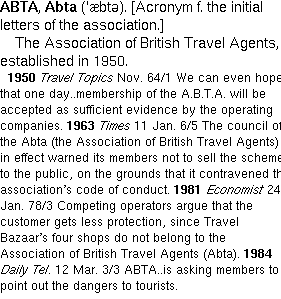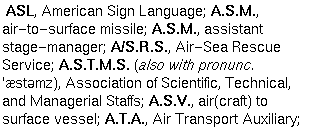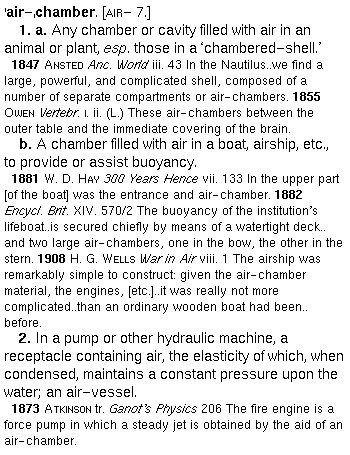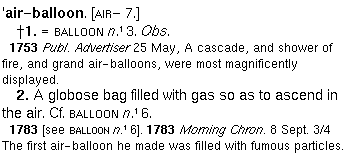Abbreviations may be entered in the Dictionary either as main words:

or in the final section of the entry for the corresponding initial letter, as at A III:

The alphabetical order of the main entries in the Dictionary is strictly letter-by-letter, i.e. ignoring capitalization, punctuation, and spaces between words:
Athoan
athodyd
at-hold
Athole brose
at home, at-home
-athon
Note that headwords in which a final letter is bracketed with an opening bracket only appear where they would if the letter(s) after the bracket were not there:
air
air(e
airable
whereas those with both opening and closing brackets appear where they would if the brackets were not present:
amarant(h)ine
amarant(h)oid
amarantite
Where two words are identical in spelling, they are differentiated by part of speech:
aid (eId), v.
aid (eId), sb.
If two words of the same part of speech have distinct etymologies, they are differentiated by superior numbers:


Combinations of words, and compound words, may be entered in their normal alphabetical sequence as main words:


If they are less complex, they are normally entered in the concluding section of the entry for the first word, as at AID:

or under the combining form which is their first element, as at AERO-:

Cross-reference to another main word (or derivative) is made in small Roman capitals:

Where the entry referred to is for a proper noun, the cross-reference appears in small capitals with a full capital initial:

Cross-reference to a phrase or word combination in another entry is made in italic type:
Some cross-references mix italic and small capitals; in these, the word in small capitals indicates the entry in which the phrase will be found:

Cross-reference entries are entered in the same alphabetical sequence as other main words:
absychitical, erroneous form of APSYCHICAL.
ahwene, variant of AWHENE v. Obs., to vex.
ai, aie, obs. form of AY, AYE, and of EGG.
|
|
|